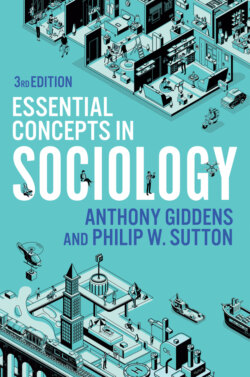Читать книгу Essential Concepts in Sociology - Anthony Giddens - Страница 61
Origins of the Concept
ОглавлениеThough the term ‘realism’ has been in use since ancient times, it entered social science via the sixteenth- and seventeenth-century philosophical debates between proponents of realism and idealism in the study of knowledge. Philosophical realists argued that there is a real world out there which can be known only through sense experience and observation. The task of science is to represent the real world in its descriptions and explanations so that, as these improve, we get closer and closer to the truth. Philosophical idealists saw knowledge as starting from the human mind rather than from an external world, so that the structures of our thinking effectively determine what can be known about that world. There is, then, no ‘direct’, unmediated access to an external world ‘out there’.
In the 1970s there emerged a reinvigorated ‘critical’ form of realism associated with the ideas of Roy Bhaskar ([1975] 2008), Andrew Sayer (1999) and others. Critical realism has come to be seen as an alternative to social constructionist approaches in sociology, thus mirroring the old philosophical debate between idealism and realism. Critical realism looks to preserve the scientific credentials of sociology but without the drawbacks associated with positivism, and it has developed into a tradition of inquiry that is particularly influential within British sociology. Critical realism provides a method which can be used to study social phenomena of all kinds, though it has been more widely adopted in some fields, such as environmental sociology, than others.
